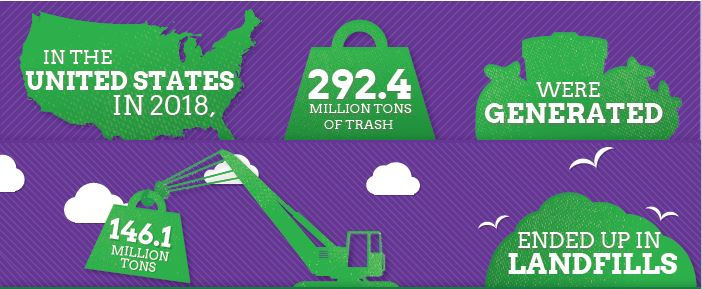All Things Zero Waste
- Wok This Way

- Nov 6, 2022
- 2 min read
Updated: Nov 24, 2022
At Wok This Way, we look for the most sustainable ways to serve tasty and healthy food. One method is using zero waste practices. There are many definitions of zero waste. The Zero Waste International Alliance defines zero waste as,
“The conservation of all resources by means of responsible production, consumption, reuse, and recovery of products, packaging, and materials without burning and with no discharges to land, water, or air that threaten the environment or human health.”
Why should we reduce waste?
The United States is one of the largest producers of municipal solid waste per person on a daily basis. This waste goes to the municipal landfills, which are a major contributor to methane emissions. Methane is one of the several greenhouse gasses that add to global warming.
One-third of waste is not safely managed and can cause harm to human health. By limiting our waste, we can reduce those negative health and environmental effects. Zero or limited waste approaches are easy to use in all settings, such as offices, schools, restaurants, and at-home.
Easy ways to limit waste
1. Sustainable house and yard work
Leave grass clippings in your lawn after mowing it. The clippings will return nutrients to the soil instead of taking up space in landfills.
For cleaning chores, buy reusable mops, rags and sponges. Buy cleaning products in recyclable packaging and only use the amount you need.
2. Smart Shopping
Get the most out of products by looking through old items to see what you can reuse. Donate any unwanted and used goods to keep them from ending up in landfills.
Shop second hand and buy products that come with less or recyclable packaging.
Use reusable bags for groceries or any kind of shopping. Use a reusable bottle/cup for beverages on-the-go. Also try reusable straws, napkins, and utensils!
3. Compost, Reuse, & Recycle
Learn to compost at home. Add food scraps, yard trimmings, and other organic wastes to a compost pile. Compost can be used to enrich soil in gardens or yards and keeps organic materials out of landfills. Learn more about composting here.
Recycle and reuse all materials possible to prevent adding to landfills.
Composting and recycling our materials can reduce greenhouse gas emissions and health hazards.




Comments